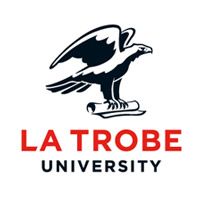fees waived
Science (Ecology), Bachelor
La Trobe University, Australia
Subject ranking
Australia / USNews 1st
Australia / QS 8th
Australia / Guardian 8th
Costs
food & rentS$22K / year
Entry requirements
Scholarships
Limited quantity
Limited quantity
Limited quantity
Limited quantity
Information
Code
Code
Intakes
Website (External)
Programmes
Information
Duration
2027
La Trobe's Bachelor of Science offers you foundational skills in science and the freedom to delve into your passions. Whether it's protecting endangered animals, developing new ways to treat disease or fighting climate change, you'll be ready to pursue your dream journey in science by tailoring your degree with a mix of majors and minors.As you learn from leading academics and researchers, you'll take a deep dive into science – not only scientific concepts, but also how scientists think, work and share their findings.Build skills in problem-solving, communication and collaboration – all highly sought after by employers – then use these skills to come up with innovative solutions to real-world problems.
We depend on the environment for food, fresh air and water, recreation, inspiration and wellbeing, but every day we see how humans are altering and affecting the environment. If you want to contribute to a more sustainable future, a major in ecology gives you the skills and knowledge to make a difference on some of the ‘big issues’ facing humanity. Ecology examines the factors that drive the distribution and abundance of organisms in the environment. It provides a knowledge base for understanding how the environment ‘works’, for appreciating the complexity and diversity of the species and communities which share our environment, and for how we can better manage land and water for a more sustainable future. Ecology offers opportunities to contribute to global environmental issues – such as climate change, protecting threatened species, enhancing urban design, and more sustainable use of forests, water and farmland. Throughout this major, you’ll discover the diversity of plants and animals in Australia and their extraordinary adaptations to Australian environments, make your own observations on plants and animals and the complex relationships between species, learn about current and emerging threats to flora and fauna and ways to protect and manage threatened species, learn to ‘read’ landscapes, and understand how human land uses, climate and disturbance processes shape the environment. Build valuable skills in collecting, reading and evaluating data, communicating scientific concepts, making judgements about environmental issues, identifying plants and animal species, observing animal behaviour, and evaluating human impacts on landscapes. Working with your peers, you’ll also learn to design investigations. This major includes opportunities to do field work, experience different ecosystems, and directly observe real-world issues and environmental management. You’ll graduate with valuable skills and knowledge of how the natural environment ‘works’, the factors that influence the distribution and conservation of species and communities, and an appreciation for how we can better manage landscapes in the 21st century. This will equip you for a wide range of roles in natural resource management, including working with people and community groups, hands-on management of land and water, developing policy and plans, and undertaking surveys and investigations, and solving environmental problems.
Students commencing their studies at Albury-Wodonga campus are required to transfer to the Melbourne campus from second year to complete this major.
A local representative of La Trobe University in Singapore is available online to assist you with enquiries about this course.

